10. Bamboo Lifestyle
10. Bamboo Lifestyle
1. Sustainability and Eco-Friendliness
Bamboo is one of the most sustainable plants globally, growing up to 1 meter per day in optimal conditions. Unlike traditional timber, bamboo regenerates naturally without needing to be replanted. By choosing bamboo products, individuals reduce reliance on slower-growing hardwoods, contributing to forest conservation and carbon footprint reduction. Bamboo also improves soil quality, prevents erosion, and sequesters CO₂ at impressive rates, making it a preferred alternative for environmentally conscious consumers. Embracing bamboo daily can significantly lessen our environmental impact and contribute to a greener, healthier planet.
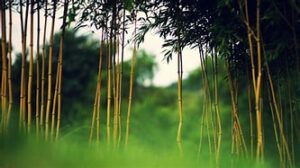
2. Durability and Versatility
Bamboo is known for its strength, sometimes even stronger than steel in certain tensile strength measures. Its resilience and versatility make it suitable for furniture, flooring, kitchenware, clothing, and much more. Bamboo products are known for their longevity and durability, ensuring that consumers enjoy long-lasting, stylish items. Additionally, bamboo’s natural resistance to moisture, insects, and UV exposure means that bamboo products can endure in various climates, providing a stable option for homes and everyday use items.
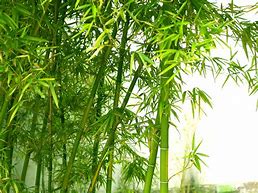
3. Natural Aesthetics and Design
A bamboo lifestyle brings a minimalist, earthy charm to homes, workplaces, and personal items. From bamboo furniture to accessories, the material’s unique grain, color, and flexibility lend a calm, natural aesthetic that easily blends into diverse decor styles. With bamboo products, you can bring a slice of nature indoors without sacrificing modern elegance. Moreover, bamboo’s warm, neutral tones enhance a room’s atmosphere, adding tranquility and creating an inviting ambiance, perfect for relaxation and mindfulness practices. This style is both sophisticated and rooted in nature, appealing to those who value aesthetics in harmony with the environment.
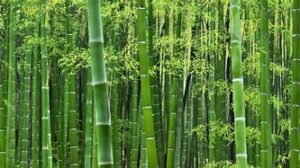
4. Health Benefits and Clean Indoor Air
Bamboo products can enhance indoor air quality due to their hypoallergenic, antimicrobial, and odor-resistant properties. This natural quality makes bamboo ideal for household items like bedding, towels, and air purifiers. Bamboo also has a natural resistance to dust mites, bacteria, and fungi, which can be particularly beneficial for people with allergies or respiratory issues. Moreover, the lack of chemical treatments in most bamboo products, particularly in textiles, reduces the risk of toxic exposure, making bamboo a safer option for families and children.
5. Comfort in Bamboo Textiles
Bamboo fiber is remarkably soft, breathable, and moisture-wicking, making it ideal for bedding, clothing, and athletic wear. Unlike traditional cotton, bamboo’s breathability helps regulate body temperature, keeping you cooler in summer and warmer in winter. Bamboo fabric also repels odors, naturally, keeping clothes and linens fresher for longer. Athletes and those with sensitive skin benefit greatly from bamboo-based clothing, which remains gentle and non-irritating to the skin, even during intensive activities. The fabric’s luxurious, silky feel also adds a touch of elegance and comfort to any wardrobe or home.
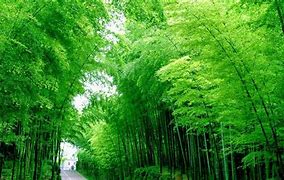
6. Water Conservation and Reduced Resource Use
Unlike cotton, which requires large quantities of water, bamboo requires little irrigation. Its deep roots allow it to access groundwater naturally, reducing the need for artificial watering. Bamboo can grow without the use of pesticides and fertilizers, further conserving resources and protecting the surrounding environment. Choosing bamboo products contributes to water conservation efforts, as bamboo-based textiles and goods leave a far lighter water footprint compared to conventional materials. In regions where water scarcity is an issue, promoting bamboo cultivation helps preserve vital water resources, supporting both ecosystems and communities.
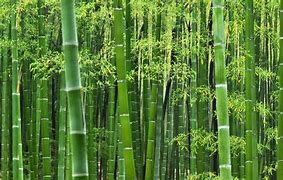
7. Bamboo as a Renewable Resource
Bamboo regenerates incredibly fast, with some species maturing within three to five years. In contrast, hardwood trees may take 20-100 years to reach full maturity. This rapid renewal rate makes bamboo a continuously available resource, helping to meet demands without risking depletion. Bamboo also plays a crucial role in stabilizing the soil in which it grows, benefiting the surrounding ecosystem. For those committed to sustainable lifestyles, bamboo’s renewability makes it an attractive choice, offering a renewable alternative to traditional materials that often require extensive replanting efforts.
8. Economic Benefits and Supporting Rural Communities
The rise in bamboo usage has created economic opportunities, particularly in rural and developing communities. As demand for bamboo products grows, farmers and artisans gain sustainable livelihoods, boosting local economies. Many bamboo-related initiatives focus on fair trade and ethical sourcing, ensuring that those involved in cultivation and production receive fair compensation. Supporting bamboo products not only benefits the environment but also uplifts communities, encouraging more sustainable practices in areas reliant on agriculture. This socio-economic impact adds a meaningful dimension to adopting a bamboo lifestyle, making it both an eco-conscious and socially responsible choice.
9. Versatility in Culinary Applications
Beyond construction and textiles, bamboo has a culinary role as well. Young bamboo shoots are edible and have been a dietary staple in Asian cuisines for centuries. They’re low in fat and calories but rich in fiber, vitamins, and minerals, making them a nutritious addition to meals. Bamboo shoots can be enjoyed in salads, stir-fries, soups, or pickled, providing versatility in the kitchen. Incorporating bamboo shoots into your diet can diversify your nutrition while introducing a unique, sustainable food source that contributes to a balanced lifestyle aligned with nature.
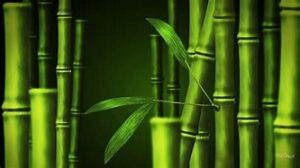
10. Promoting Conscious Consumerism and Mindfulness
A bamboo lifestyle encourages mindful consumption by focusing on products that are not only eco-friendly but also crafted with intention. Bamboo’s aesthetic and functional qualities remind us of the importance of choosing items that align with our values, emphasizing quality over quantity. As consumers become more aware of the environmental and social implications of their purchases, bamboo products offer a conscious choice that supports sustainability, ethical sourcing, and eco-friendly practices. By adopting a bamboo lifestyle, individuals embrace a way of living that values simplicity, respect for nature, and the pursuit of mindful consumption.
Conclusion
Embracing a bamboo lifestyle means actively participating in a movement toward sustainability, quality, and mindful living. Bamboo’s numerous benefits extend beyond the material itself, fostering a holistic approach to everyday choices and nurturing a deep respect for nature.
Light relationship with brotherhood Darkness